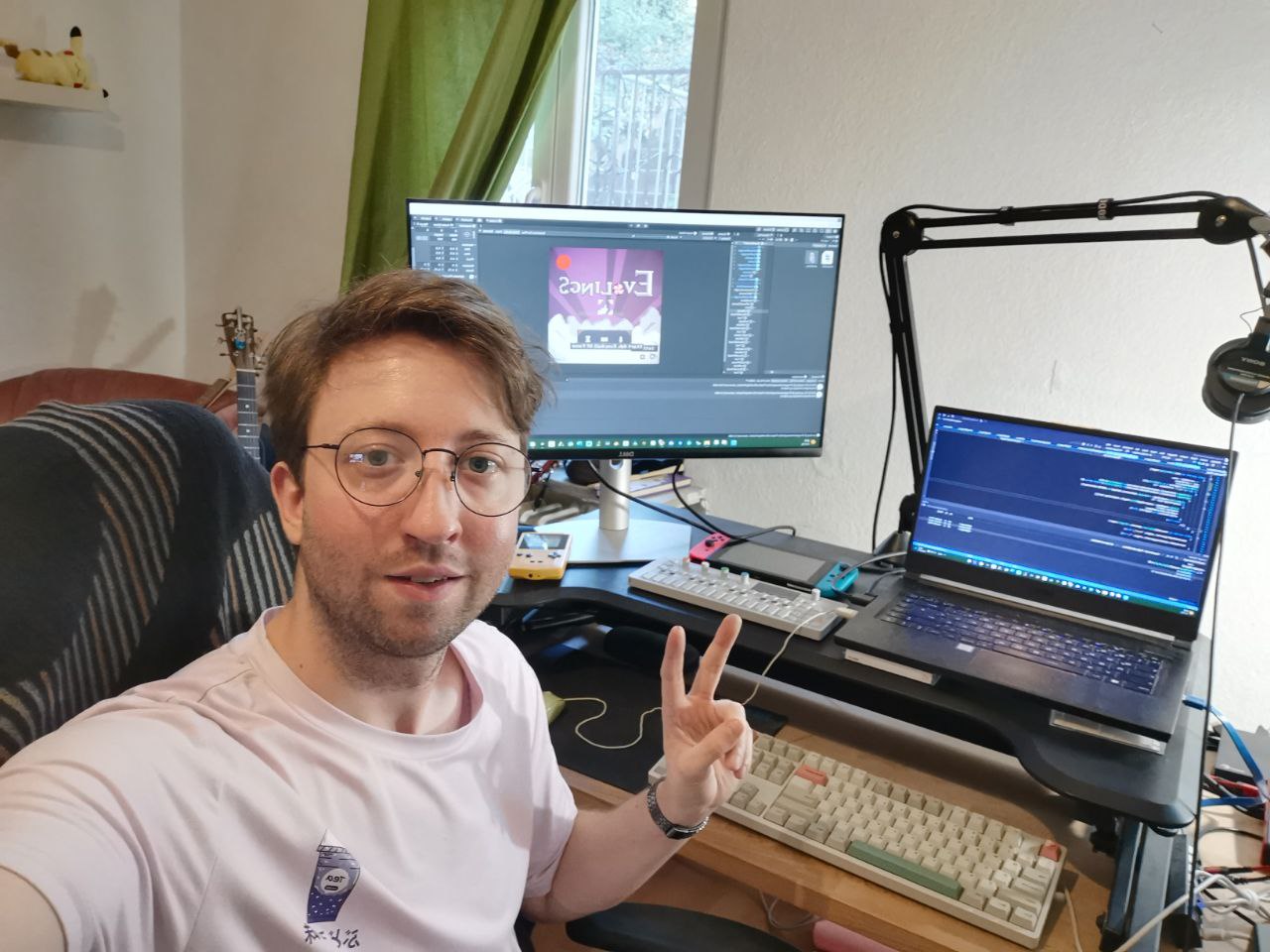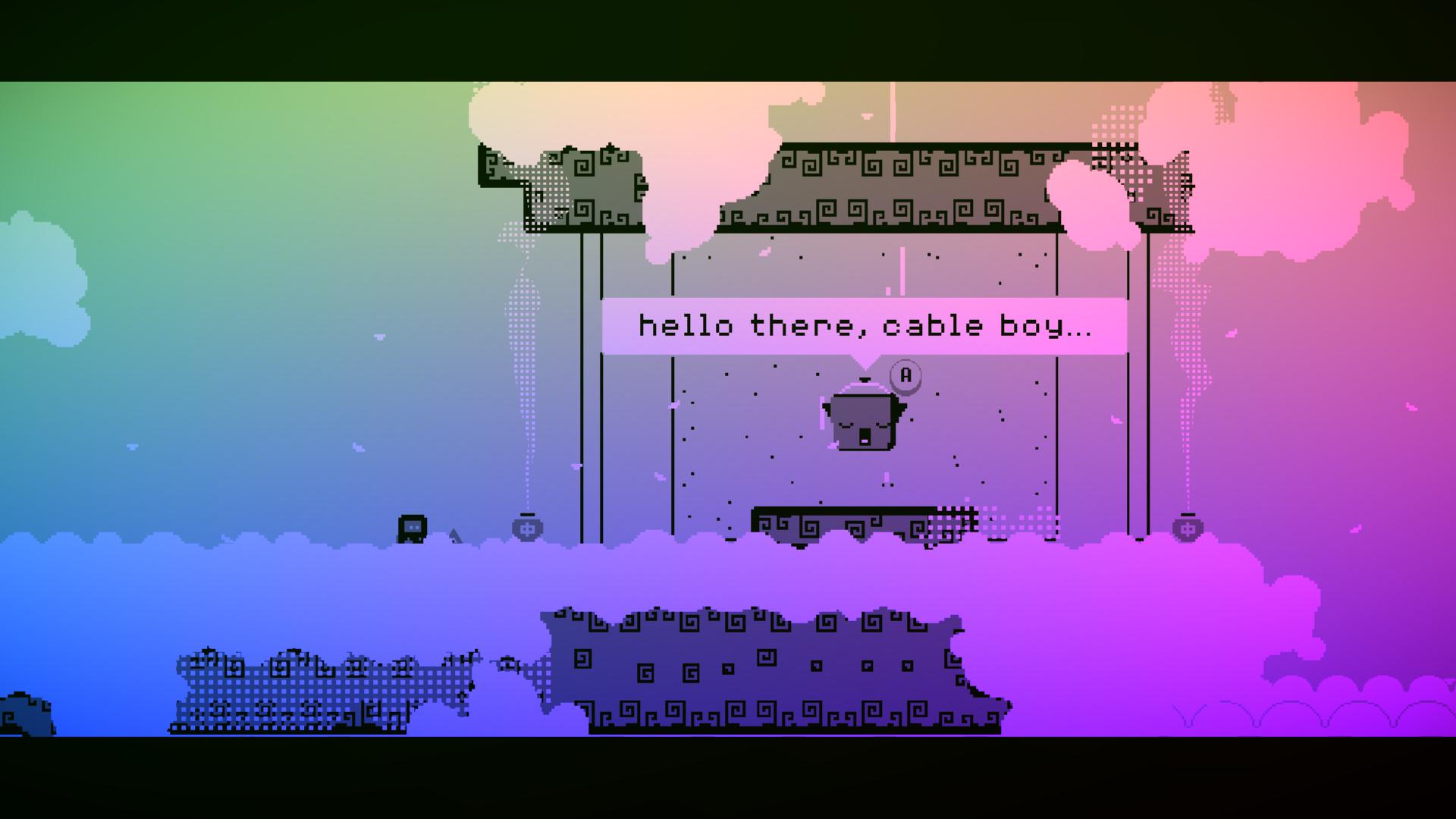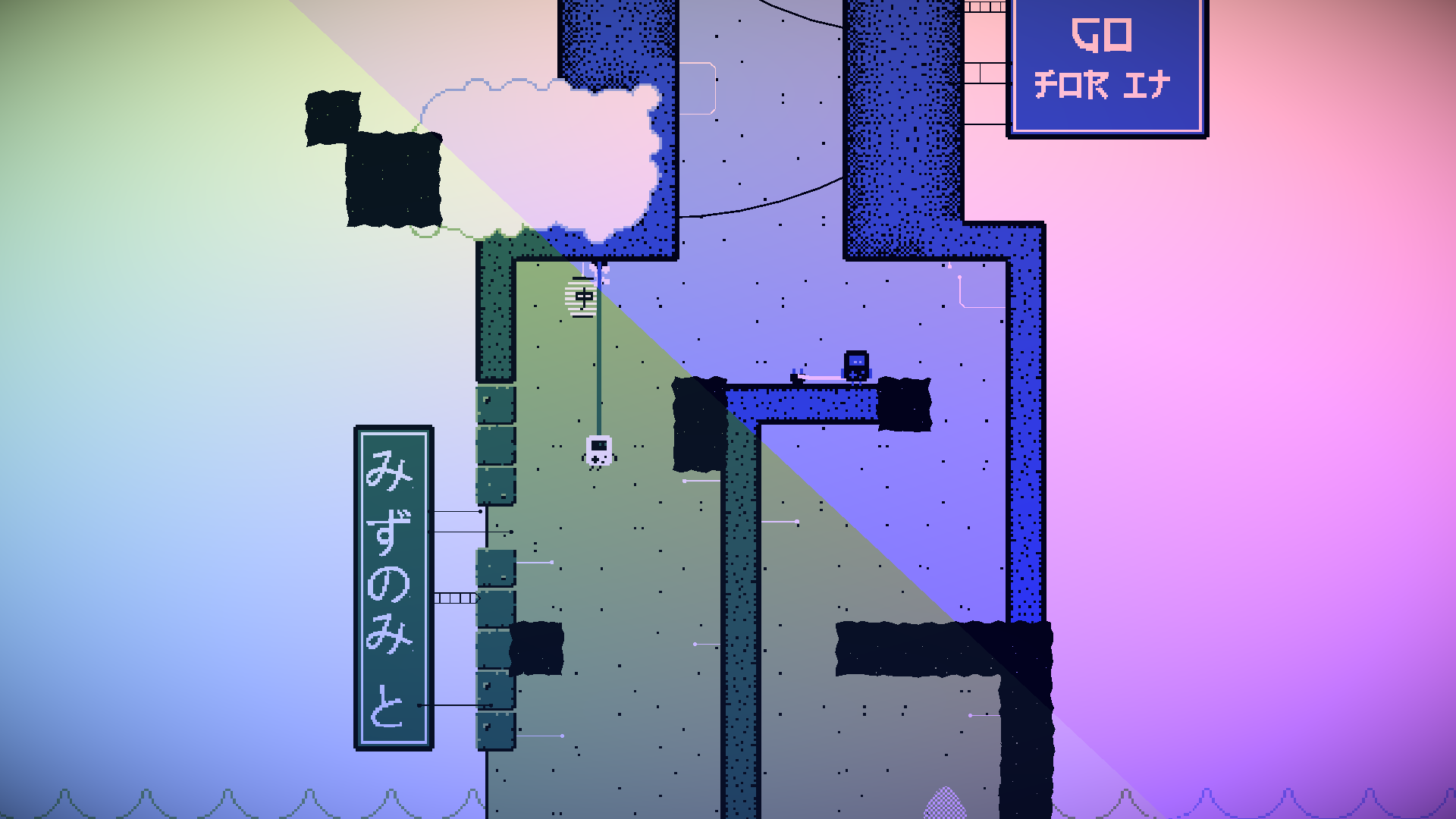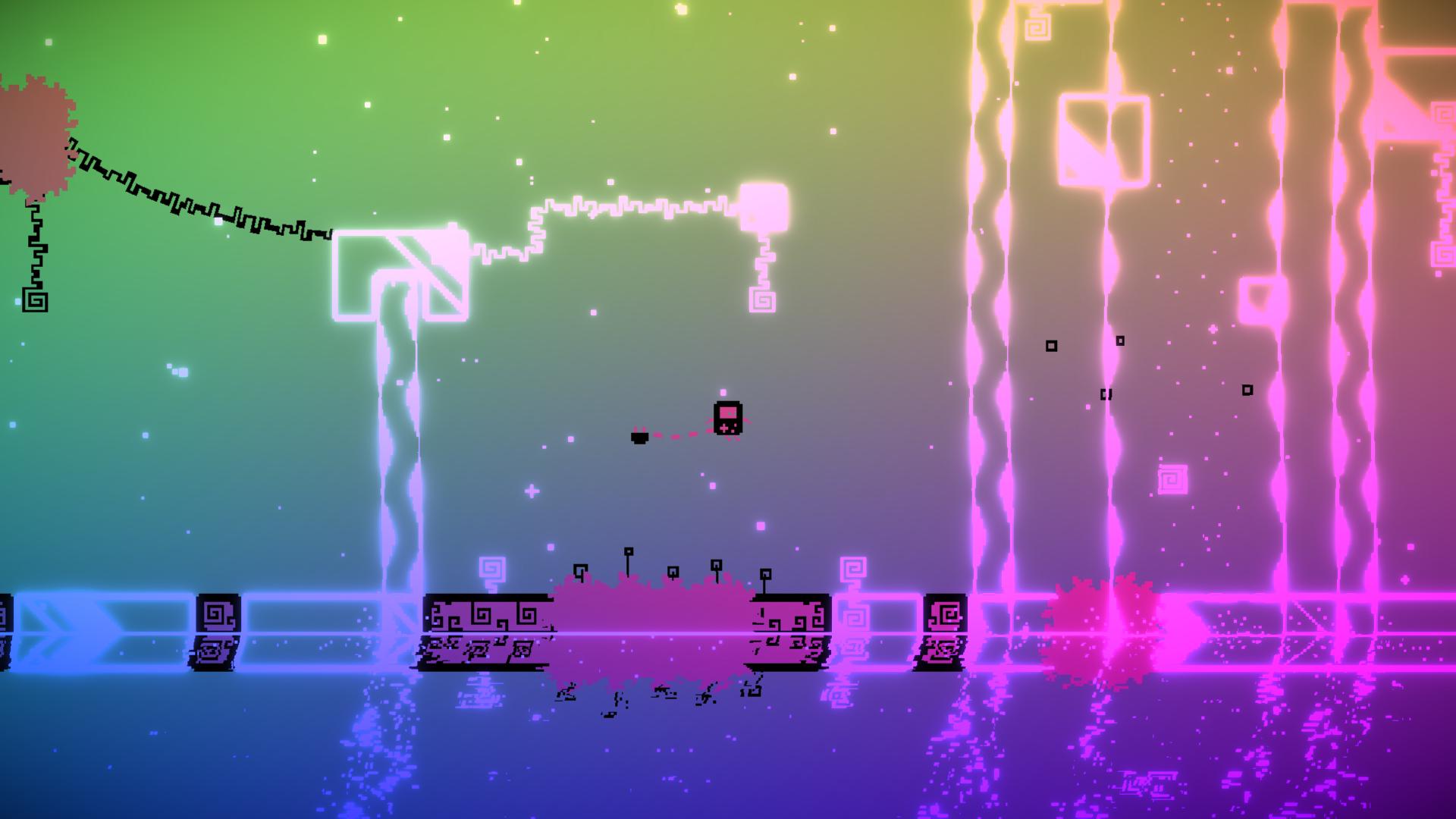At Affogata, we work with world-leading game studios, but the passion and creativity of the indie creators community always amaze us and this is why we started this series, to showcase their unique work. And this game is no exception.
Meet ‘Super Cable Boy’, designed and created by Sebastian A. Lieb (nobody knows what the A. stands for 😱), known online as Sørb who we were fortunate to meet at Gamescom 2022. We wanted to get to know more about Sørb’s creative process, inspiration, how he receives player feedback, and more and these are his insights:
Tell us a bit more about the plot of your game:
Super Cable Boy is a fast-paced platformer game with tight controls. You play as “Cable Boy” a rectangular GameBoy-like character living in a world full of hardware and software gore. After encountering “the glitch” during a bad dream while in sleep mode, he decides to start his journey to “the cloud”, a place where all knowledge is stored and where he might find some answers. He then learns about “the cartridges” and him being the only one left that is compatible with the power they hold. The rest of his adventure is about him finding
these cartridges and using them throughout his quest to find and defeat the source of “the glitch”. There is a lot of developer humor and easter eggs scattered along the way.

What are you currently working on (game/feature)?
I’m still working on Super Cable Boy, released in 2020 on Steam and 2021 on the Nintendo Switch. It has received a couple of free updates since and I’m working on a build-in level-editor right now. I’m also working on a couple of other projects, one being Evolings, which is a mixture of rogue-like and monster catcher games, but I can’t tell you too much about that right now.
Tell us a bit about you and what made you start a career in games.
I just liked playing games as a kid, but I didn’t really have any internet at the time. So when I got a CD with the programming environment “PureBasic” on it and realized I could create my own games with it, I never really stopped. I also love maths and physics and I love to create music and art and making games is basically the only place all these passions come together.
Can you tell us a little bit about the creative process of coming up with a new game?
I think most of the games I make are often a mixture of elements from other games I like. Whenever I get obsessed over a new video game I really like to extract what makes this game good and try to recreate it in my own way and Frankenstein it together with other gameplay elements I picked up. I think many indie developers do that, that’s why you often get these cool new genres like “roguelike, but it’s also a monster catcher”, “Minecraft, but with guns!” or stuff like that. Another source of game ideas is game jams, where it’s just fun to try out stuff you would never have thought of given the game jam theme and insane time constraints. It forces you to just do things without overthinking them or thinking about them too much at all.

Once the game is “playable” who are the first people you use as beta testers?
The first people would probably be friends and family. Often it’s the people that are around me anyways, like my roommates (I live in a shared flat). After that, I’ll let social media know about it.
After them, do you post a beta of your game on a bigger community/forum? If so, where?
I’ve found out Reddit is a good place to post gifs and video snippets of your game, because the people there are often brutally honest and will tell you the bad things as well. In contrast to Twitter, where most comments are from your little follower bubble, where everyone tries to be as nice as possible to not get canceled. Also, it can be a good idea to launch a game on a smaller platform first, like itch.io to test the waters before putting it on Steam, eShop, etc.
How do you get and document the feedback?
That really differs from game to game. One thing I did in Super Cable Boy, was to add the “press F11 to write feedback” thing, which was just the easiest way for players to write feedback and send it directly to my inbox with the push of a single button. And because it was all in-game, I could attach meta-information about where the player is currently, how often they had died in this level, and so on. I think it’s really important to make the feedback process as easy as possible as it increases the chance of people actually using it.
How do you decide which feedback pieces to employ in your development?
That’s tricky. Usually, if the feedback comes from a person I trust, I’ll take it a lot more seriously and might apply it more likely. Also, if the same feedback comes from different people independently I’ll take it more seriously. But you have to remember that most people who give you feedback haven’t thought as intensively about a certain thing as you have, as the developer and sometimes they don’t actually know what they want. That can be both a blessing and a curse. It can help point out things that are obvious to outsiders that you didn’t see anymore, but it can also destroy well-crafted design decisions. For example, in Super Cable Boy many people were missing the “jump higher if you press the jump button longer” mechanic that you are used to from almost any other platforming game. The thing was, the mechanic had been there initially, but had been removed because there were other buttons to focus on while jumping. People just really struggled with the controls, if they had to constantly hold the jump button on top of that. So the solution for me was not to add a variable jump mechanic but to design levels that do not require a variable jump.

Does feedback from fellow gamers or fellow developers count more to you than comments from others?
No, not really. But I appreciate that gamers or developers often already have a better idea of how to solve an issue, instead of just stating the issue. Also, they might not pitch unrealistic ideas, because they might know what is possible and they might know certain conventions about video games that have proven useful.
How do you approach conflicting feedback from different people you trust?
If they are conflicting anyways, I might just decide what I like more myself. And if I’m honest, that’s probably the solution that requires the least amount of work.
If you could improve the way you gather feedback, what would you do?
Probably be more in touch with fans of my work and followers on social media, so that discussions and cool ideas can arise with the people that are passionate about the same things that I am. I should try to make room for that and encourage that more.
Subscribe to our blog to read more stories about amazing creators from passionate professionals.
